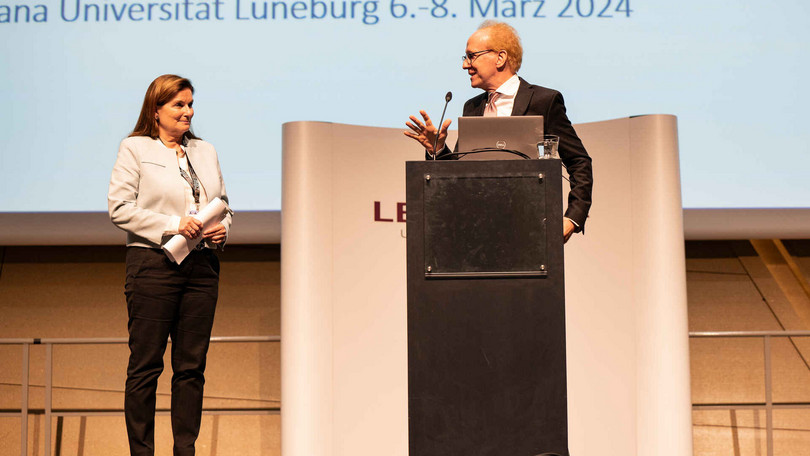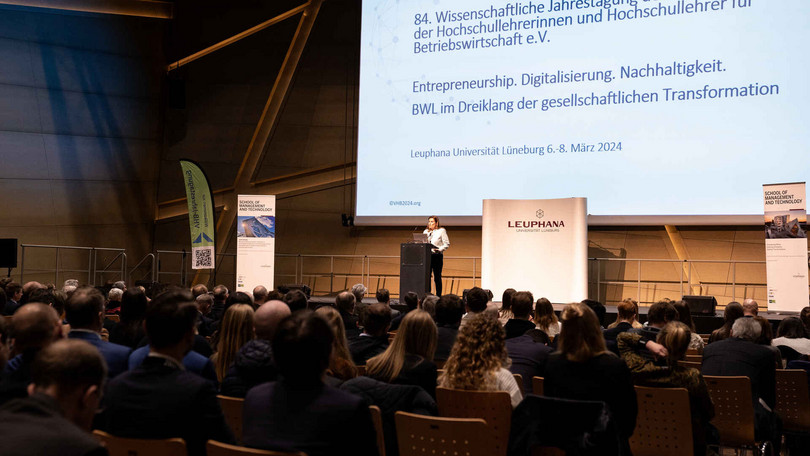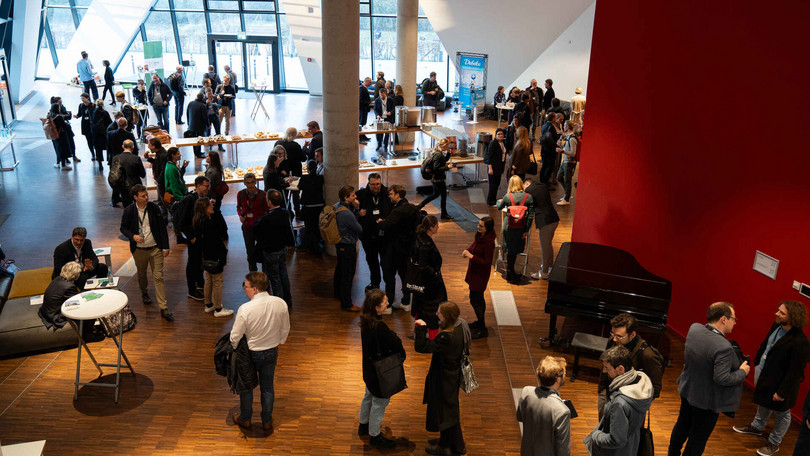VHB Keynote by Ann-Kristin Achleitner - "Giving Coincidence a Chance"
2024-03-07 The world is undergoing profound change. Companies are looking for profitable business models and markets. Societies are striving for stable framework conditions. Both are currently hard to come by. In this climate, business management is assuming its responsibility - it can even become a coordinator of perspectives.
Business administration already incorporates various scientific disciplines such as psychology, philosophy, computer science, law, political science, and engineering into its research. This increases the impact of its findings on solving practical problems in companies and organisations. Hence, the interdisciplinary cooperation is to be expanded even further in the future. A clear message sent out by the 84th annual conference of the Association of University Professors of Business Administration in Lüneburg.
Sascha Spoun, President of Leuphana, said at the opening: "It is necessary to broaden the entrepreneurial view of society - and to open society’s view to the needs of companies." The Lüneburg discussions held by the 500 or so participants also tackled the critical questions. What answers can business administration really provide - continues Spoun - and what does its future contribution to society look like? Why are entrepreneurial concerns in the country never really anchored in public perception? What has business administration itself failed to do here? The Leuphana President finally asked: "Was business administration so out of touch?"
The keynote speech was given by Ann-Kristin Achleitner, School of Management at the Technical University of Munich. She offered a similar analysis and outlined a positive scenario. Achleitner is active on both sides, both as an academic and as a practitioner in and with companies. "It's true that business administration has a high level of practical design ambition," she said, "the only question is, what contribution will it make to transformation?" It must be acknowledged that the world has become more complex and the geopolitical challenges greater. In many cases, this restricts the political and economic room for manoeuvre.
Overall, Achleitner remained forward-looking. This is because the driving forces behind the transformation of companies and organisations towards a new, sustainable way of acting can be identified and used innovatively. For example, she sees great economic and social opportunities in the developments surrounding greater transparency in sustainability, the spread of artificial intelligence, and in quantum computing. In view of the profound changes in private and public life associated with this, however, it is justified to ask: "Is disruption itself disrupting here?"
The TUM researcher built a bridge to the future: "Technological change provides an incentive to further develop one's own products, services - the business model as a whole." Here, business administration is involved in a coordinating role in the triangle of research, the state framework and active companies.
Ann-Kristin Achleitner formulated two suggestions for universities and companies. "The key question for companies in the future is how spaces and formats can be created in which knowledge can be combined in new ways. How can I give coincidence a structural chance?" And universities have to remain protected spaces for controversial debates. In the spirit of Leuphana’s study model, she concluded with a wish to offer a qualification at universities in the future that "always enables a change of perspective" without being unfaithful to the respective disciplines.




